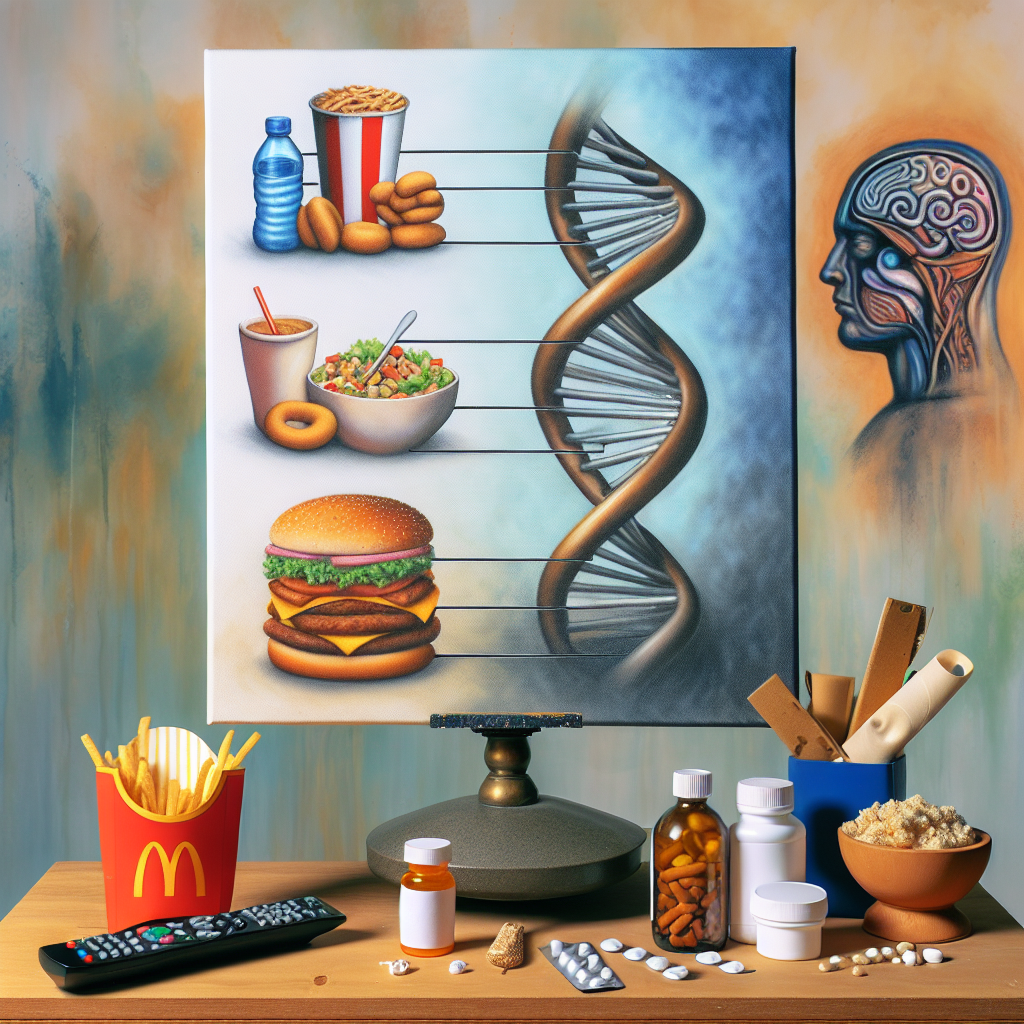Causes Of Obesity
Striding confidently into the realm of dietary and lifestyle impacts, we’re setting our compass towards understanding the roots of obesity, a prevalent issue staking claim to our modern society. In this grand exploration, we ensure to untangle the complex web of causes – from genetic predispositions to emotional triggers, from sedentary lifestyles to unhealthy eating patterns. Prepare to embark with us on a journey through biological pathways, individual habits, and environmental factors that orchestrate the burgeoning epidemic of obesity. This discourse is the lantern illuminating our path towards comprehending the multifaceted factors contributing to obesity.
Understanding Obesity
Obesity is a complex affliction to grasp, with its many layers and nuances. Let us embark on a journey together, navigating its intricate labyrinth.
Definition of Obesity
In the broadest sense, obesity is a medical condition defined by an excessive amount of body fat. It transcends simply being a cosmetic concern; it is a genuine health issue that increases your risk of diseases and health problems like heart disease, diabetes, high blood pressure, and certain cancers.
Difference between Obesity and Overweight
Often, the terms ‘overweight’ and ‘obesity’ are misguidedly used interchangeably. However, they represent different stages on the spectrum of weight that is considered unhealthy. Overweight points towards a weight that is more than what is considered normal or healthy for a particular height, while obesity is further along on the weight spectrum, indicating the accumulation of so much body fat that it creates a raft of health complications.
Global and Regional Obesity Statistics
Through our global village, obesity has spread its tendrils far and wide. According to the World Health Organisation, Worldwide obesity has nearly tripled since 1975. In 2016, more than 650 million adults were obese – a staggering number to wrap our heads around.
Genetic Factors
The Role of Genetics in Obesity
Life handed us our genes when we were born, a lottery we had no control over. It’s like a hand of cards in a game, determining our predispositions, including obesity. Yes, unfortunately, unlike an unwanted gift, we can’t return our genes.
Various Genes Associated with Obesity
We inherit a host of genes from our parents, and amongst these, some could predispose us to obesity. Genes like FTO and MC4R have been associated with obesity. They may influence behaviors like hunger, satiety, and food preferences, which can predispose us to obesity.
Interplay between Genetics and Environment
Our genetics set the stage, but it’s environmental factors that play out the show. Even if we have obesity-gene variants, they need to interact with an environment that promotes high calorie intake and physical inactivity for obesity to manifest.

Environmental Factors
Impact of Unhealthy Food Environment
We are creatures of our environment, often at the mercy of the unhealthy food labyrinth around us. Fast-food chains beckoning from corners, processed food cropping up in our kitchens, sugary drinks masquerading as thirst-quenchers – all entrench and exacerbate the obesity epidemic.
Effect of Sedentary Lifestyle
The modern-day sedentary lifestyle, a product of technological advancements, has us ensnared in its web. Long hours in front of screens, machines doing the brunt of physical work – it’s a petri dish for cultivating obesity.
Influence of Socioeconomic Status on Obesity
Socioeconomic status also influences obesity in a profound manner. Lower income groups may have limited access to healthy, affordable food, and safe places for physical activity, augmenting obesity.
Behavioral Factors
Role of Physical Activity
Physical activity is the hard work behind the curtains, controlling body weight by balancing energy expenditure with energy intake. Low levels of physical activity can tip this balance, leading to weight gain and obesity.
Importance of Healthy Eating Habits
Healthy eating habits are like the underscore beneath our health, barely noticeable but crucially important. Consuming high-calorie, nutrient-deficient foods can not only lead to weight gain but also propel us into a vortex of near-irreversible health complications.
Impact of Sleep and Stress on Obesity
Sleep and stress seem like elusive factors, don’t they? But they silently pull the puppet strings, influencing our eating behaviors. Stress often leads to emotional or “stress-eating”, while inadequate sleep can stimulate hunger drivers, both leading to obesity.

Psychological Factors
Stress and Emotional Eating
Stress is an invisible enemy that creeps uninvited into our lives, causing us to resort to emotional eating as a coping strategy. This can create a pattern of overeating and weight gain, further escalating levels of obesity.
Depression and Obesity
Depression and obesity are often entwined in a cruel dance, each one feeding off the other. Depression can lead to overeating and inactivity, which in turn leads to weight gain, and this weight gain can deepen depression, creating a vicious cycle.
Body Image and Self-esteem Issues
We live in a world that audaciously defines beauty standards, leading to body image and self-esteem issues. These, in turn, can trigger harmful eating patterns and unhealthy weight control behaviors, fueling obesity further.
Medical Conditions
Impact of Hormonal Imbalances
Our bodies are intricate machines run by hormones. When these hormonal levels get disrupted, it can lead to abnormal weight gain and eventually, obesity.
Effect of Certain Medications on Weight Gain
Medication, while helping to manage certain disorders, can be a paradoxical fire-starter for obesity. Certain drugs, such as antidepressants, antipsychotics, and corticosteroids, can potentially cause weight gain.
Consequences of Diseases like Hypothyroidism and PCOS
Certain diseases, like hypothyroidism and Polycystic Ovary Syndrome (PCOS), are intricately linked with obesity. They can either cause weight gain and obesity or their onset can be triggered by the presence of obesity.

Childhood Obesity
Parental Involvement and Childhood Obesity
Just like a sapling grows under the gardener’s watch, children develop under the vigilant eyes of parents. Parental habits, both dietary and physical activity, cast a long shadow on children, who often mirror these behaviors and attitudes.
Impact of Early Life Nutrition
The nutritional landscape during early years of life serves as the foundation for future health. Unhealthy eating practices early on pave the path towards obesity later in life.
Effect of Sedentary Behaviors in Children
Children today are caught in the virtual world of screens. This widespread sedentary behavior is proving to be a formidable driving force behind the rising rates of childhood obesity.
Obesity and Aging
Changes in Metabolism with Age
As we journey from youth to age, our metabolism often takes an unforeseen turn. Metabolism slows with age, making weight maintenance more challenging, and setting the stage for weight gain and obesity.
Impact of Decreased Physical Activity
As we grow older, our engagement with physical activity starts dwindling. This decreased physical activity, combined with metabolic changes, can lead to obesity in the elderly.
Age-related Diseases and Obesity
Aging brings along a suitcase of diseases – arthritis, diabetes, heart disease, among others. These conditions can limit our ability to perform physical activities, leading to weight gain and obesity.

Socio-Cultural Influences
Influence of Media on Perception of Body Image
Media, the modern mirror, greatly influences our perceptions of body image. It often propagates unrealistic thin body images as the ideal, increasing the risk of body dissatisfaction and eating disorders leading to obesity.
Food Culture and Eating Habits
Our food culture and eating habits are an intricate tapestry woven with societal norms. Abundant portions, eating out regularly, and valuing food as a reward are fast-becoming norms that contribute towards obesity.
Social Class and Obesity
Our social class, an invisible but potent influencer, often determines access to nutritious food and opportunities for physical activity. Disparities in these can lead to higher obesity prevalence in lower social classes.
Obesity Prevention and Management
Role of Balanced Diet
In the battle against obesity, a balanced diet emerges as a potent weapon. A diet low in saturated and trans fats, cholesterol, sodium, and added sugars, but rich in fruits, vegetables, whole grains, and lean proteins can prevent and manage obesity.
Significance of Regular Exercise
Regular exercise, the unsung hero, plays an instrumental role in preventing and managing obesity. It enhances our metabolism, burns calories, and improves overall health.
Mental Health Care and Obesity
Mental health care has an unmistakable role in managing obesity; it’s often the neglected key. Cognitive-behavioral therapy, stress-management techniques, and mindfulness can all help to modify eating behaviors, consequently managing obesity. As we have journeyed through the maze of obesity together, we see it is a complex tapestry woven with various threads – genetic, environmental, behavioral, psychological, medical, societal and cultural. But remember, just as it takes a multitude of factor to create the tapestry of obesity, it also takes a variety of approaches to untangle it. Through understanding, awareness, and timely intervention, it’s a challenge that we can overcome together.



Pingback: Obesity Occurs When
Pingback: How Can Overweight And Obesity Be Prevented?